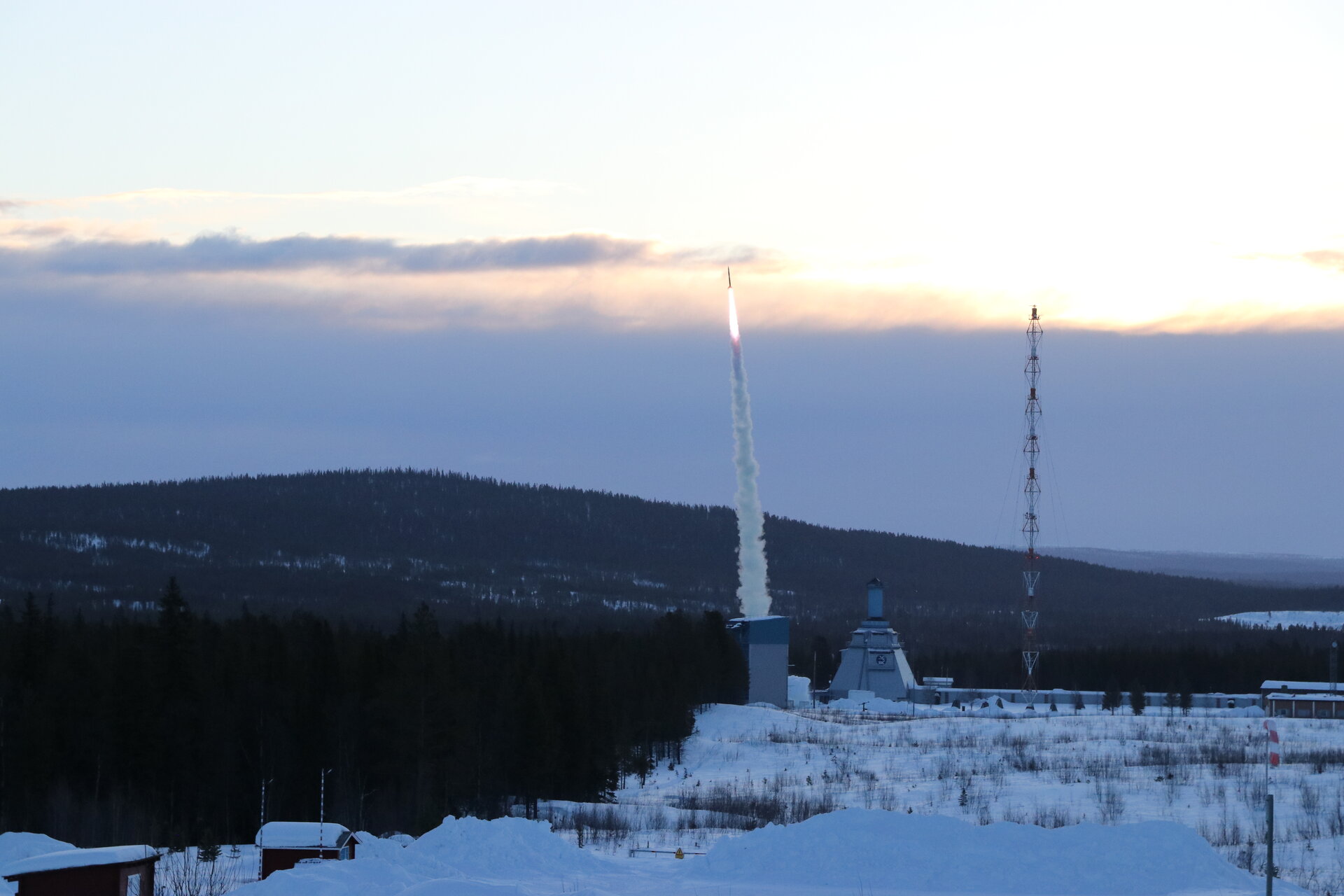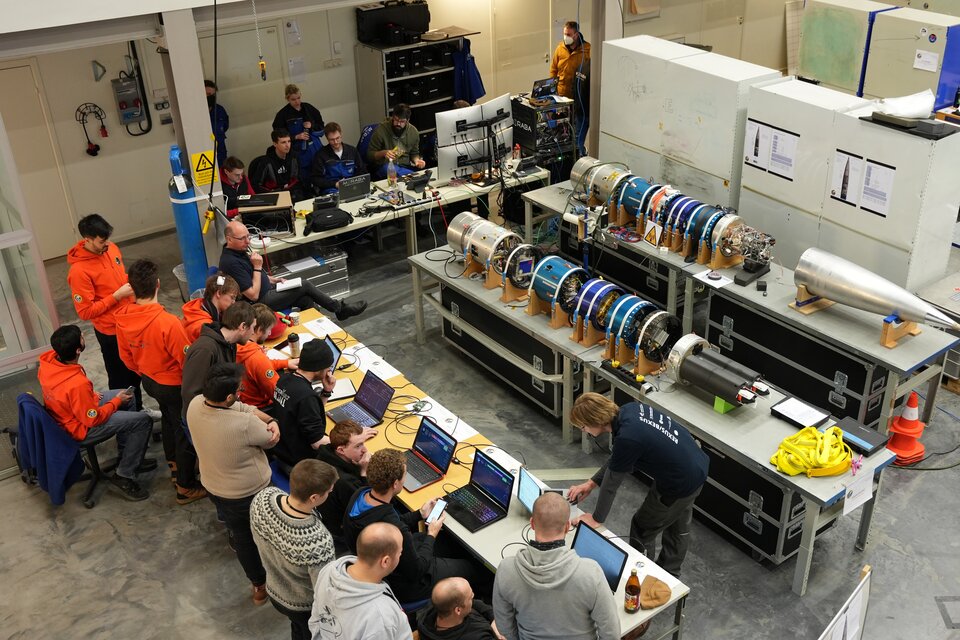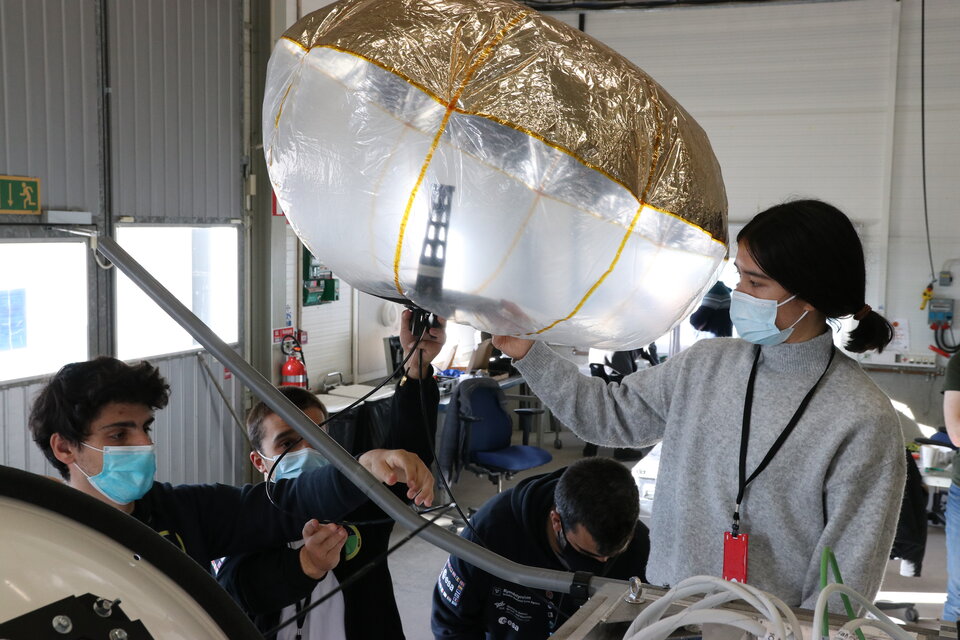Submit your proposal for the 15th cycle of REXUS/BEXUS
Are you a university student seeking an exciting opportunity to gain hands-on experience outside the lecture hall? Take your chance to put your experiment on a sounding rocket or a stratospheric balloon with the REXUS/BEXUS programme!
The Call for Proposals for cycle 15 of the Swedish-German REXUS/BEXUS programme is now open until the 8th of October 2023, 23:59 (CEST)! Apply here.
The REXUS/BEXUS Programme allows students from across ESA member states, Canada, Latvia, Lithuania, Slovakia and Slovenia, to apply for a unique opportunity to fly their experiment to the edge of space on board a sounding rocket (REXUS) or a stratospheric balloon (BEXUS)! Twenty teams participate in this exciting programme every year.
Selected teams will have the chance to participate in the scientific and technical adventure of developing an experiment, flying it and analysing their results. Through this hands-on experience, the participants will gain practical knowledge on each step of the design of a space mission, from preliminary design to testing and launch. Finally, they will be given the opportunity to attend an international symposium and present their findings to the scientific community! Throughout this journey, participants are supported with training and feedback by agency and industry experts and collaborate with student teams from many other countries.
The REXUS sounding rocket and the BEXUS stratospheric balloon
REXUS is a single-stage rocket propelled by an Improved Orion solid motor and can reach an altitude of up to 90 km. The rocket can carry about 45 kg of payload and provides around 3 minutes of reduced gravity flight.
BEXUS is a 12 000 m3 stratospheric balloon able to carry a payload of 40-100 kg to a floating altitude of 20-30 km. The flight duration is usually between one and five hours.
What is the timeline for selection?
Applications are now open and will close at 23:59 (CEST) on the 8th of October, 2023. Once the Call for Proposals is closed, the selection process is made of two steps:
- A preliminary selection is made by review of all the proposals, and the shortlisted teams are invited to present their project at a Selection Workshop.
- During the Selection Workshop, held from 28 to 30 November 2023 at ESA-ESTEC, invited teams will present their experiment idea to a panel of experts. The expert panel will then decide which teams are selected to participate in cycle 15 of the REXUS/BEXUS programme and selected teams will be informed shortly after the Selection Workshop.
A training week is provided at the beginning of February 2024, with the BEXUS balloon launch planned for October 2024 and the REXUS rocket launch campaign in March 2025.
How to get started?
To prepare a consistent proposal for this exciting but demanding programme, you should follow the below steps:
- Form a team with at least four students from different relevant backgrounds who are eligible for sponsorship.
- Explore the REXUS/BEXUS website to learn more about the platforms and requirements through the user manuals.
- Have a look at the previous experiments classified by area of investigation such as: atmospheric measurements, microgravity investigations, technology demonstrations for future space missions, and even biological sciences.
- Propose a feasible experiment and justify the need for the platform (REXUS or BEXUS).
If you need some inspiration for your REXUS/BEXUS experiment, here are some things to consider:
- Explore Current Trends: Keep up to date with the latest research in your field and investigate current trends to see what gaps or opportunities exist for new experiments. Stay curious and open-minded, and don't be afraid to think outside the box!
- Collaborate with Others: Brainstorming with other students, professors, or industry professionals can help you generate new ideas and perspectives for your experiment proposal. You can also join forces with other universities to tackle more complex research questions.
- Review Previous Projects: Look at past REXUS/BEXUS experiments for inspiration and to learn from what others have done before. Check out the experiment reports and publications on the REXUS/BEXUS website to see what questions have been answered and what new questions have arisen.
- Identify Real-World Problems: Consider how your research can address real-world problems, such as climate change, resource depletion, or human health. Your experiment proposal could directly impact society and contribute to a better future for all.
-
Consider New Technologies: Emerging technologies, such as AI, robotics, and nanotechnology, offer exciting possibilities for space research. Consider how your experiment proposal can leverage new technologies to push the boundaries of scientific exploration.
Questions? - Consult with ESA before applying
Students are invited to ask the REXUS/BEXUS team at the ESA Education office for advice, guidance and answers to any questions regarding their experiment idea, application, and process. This consultation does not influence the selection procedure. Feel free to ask us any questions or share any concerns you have. The goal is to ensure that the teams submit the best proposal they can, thus increasing their chances of selection.
Contact us at rexus-bexus@esa.int
I am studying in Germany – How should I apply?
As the programme is partly funded by DLR (the German Aerospace Centre), there is a slightly different application process for students studying in Germany. Full details can be found on the REXUS/BEXUS webpage.
How is the programme funded?
The REXUS/BEXUS programme is realised under a bilateral Agency Agreement between the German Aerospace Center (DLR) and the Swedish National Space Agency (SNSA). The Swedish share of the payload has been made available to students from other European countries through a collaboration with the European Space Agency (ESA).
EuroLaunch, a cooperation between the Esrange Space Center of SSC and the Mobile Rocket Base (MORABA) of DLR, is responsible for the campaign management and operations of the launch vehicles. Experts from DLR, SSC, ZARM, and ESA provide technical and logistic support to the student teams throughout the project. REXUS and BEXUS are launched from SSC, Esrange Space Center, in northern Sweden.




